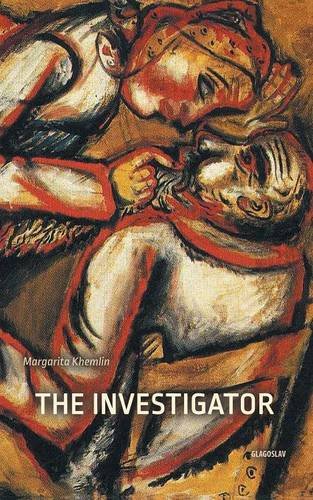The Investigator
Set in the author’s native Ukraine in the early 1950s, the novel tells of the murder of a young woman. It seems at first to be a cut-and-dried case, as her lover confesses and subsequently commits suicide. But the eponymous investigator, former intelligence officer Mikail Tsupkoi, isn’t convinced and sets out to delve deeper. The reader is introduced to a wide-ranging and diverse cast of characters, each of whom has a story to tell and secrets to hide. Nothing is clear and open. Many theories and possibilities are uncovered.
Not surprisingly in a novel set in Stalinist times, anyone could be accused. Even Tsupkoi himself is suspected of trying to keep the story quiet because the woman was Jewish. Anti-Semitism dies hard in these years and in these parts. The Second World War still casts a long shadow. The uneasy relationship between the Soviet state and the Jewish community is still fraught. Some of the worst atrocities of the war took place in rural Ukraine, where people suffered both under the Stalinist regime and the Nazis. Small references, given almost as asides, bring this home all too clearly.
So who are the victims and who are the perpetrators? Conspiracies and denunciations abound, fear dominates, and truth is the first casualty. It’s a meandering, polyphonic and multi-layered narrative which I found somewhat too complex for its own good. The twists and turns of the plot are sometimes hard to follow and the characters hard to relate to. There’s a lot packed into the tangled narrative, and whilst I appreciated the moral ambiguity that pervades the novel, I can’t say that I actually enjoyed it. It’s certainly a book that rewards close-reading, but I nevertheless found myself flagging at times. Worth reading, indeed, but a certain stamina is required.










